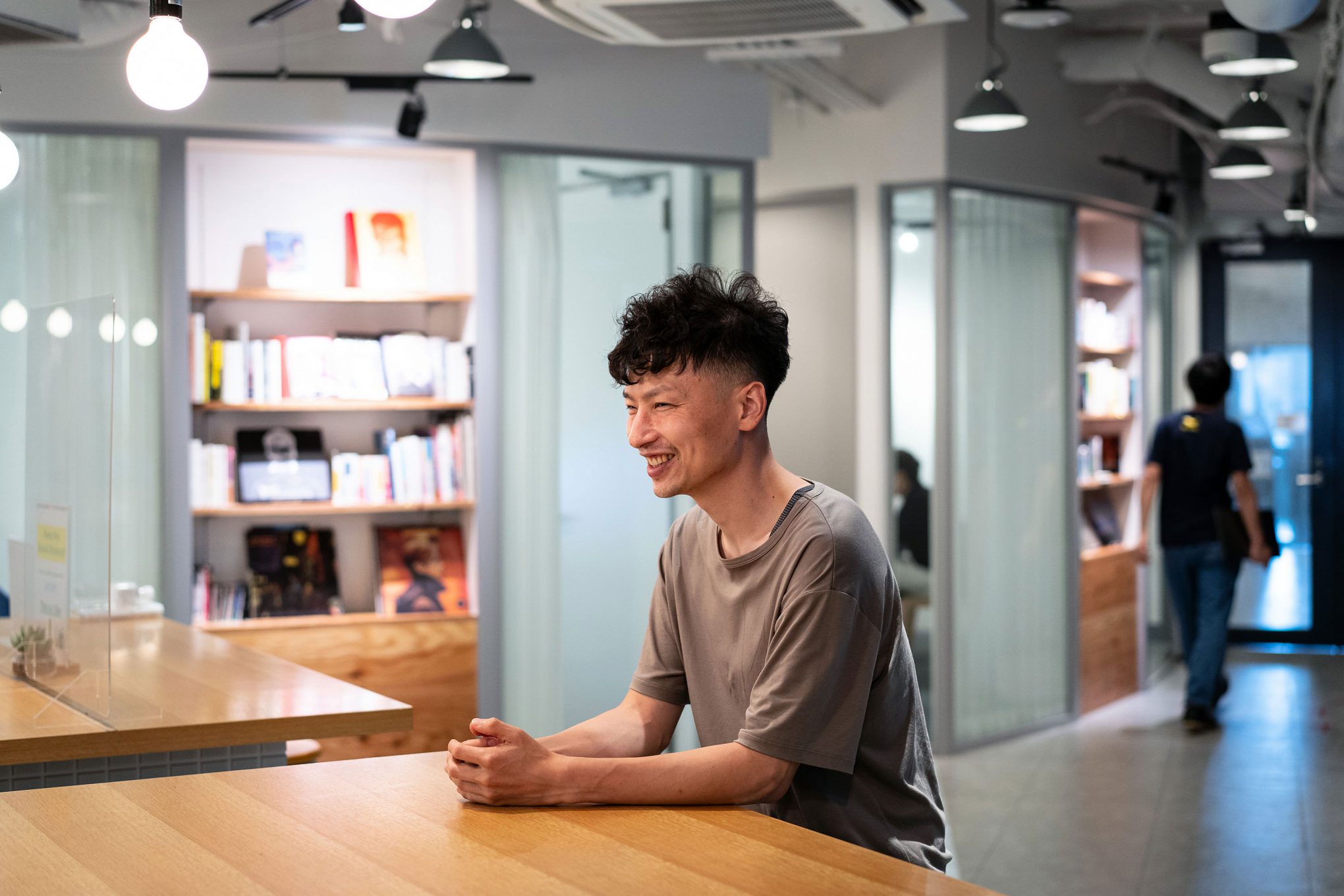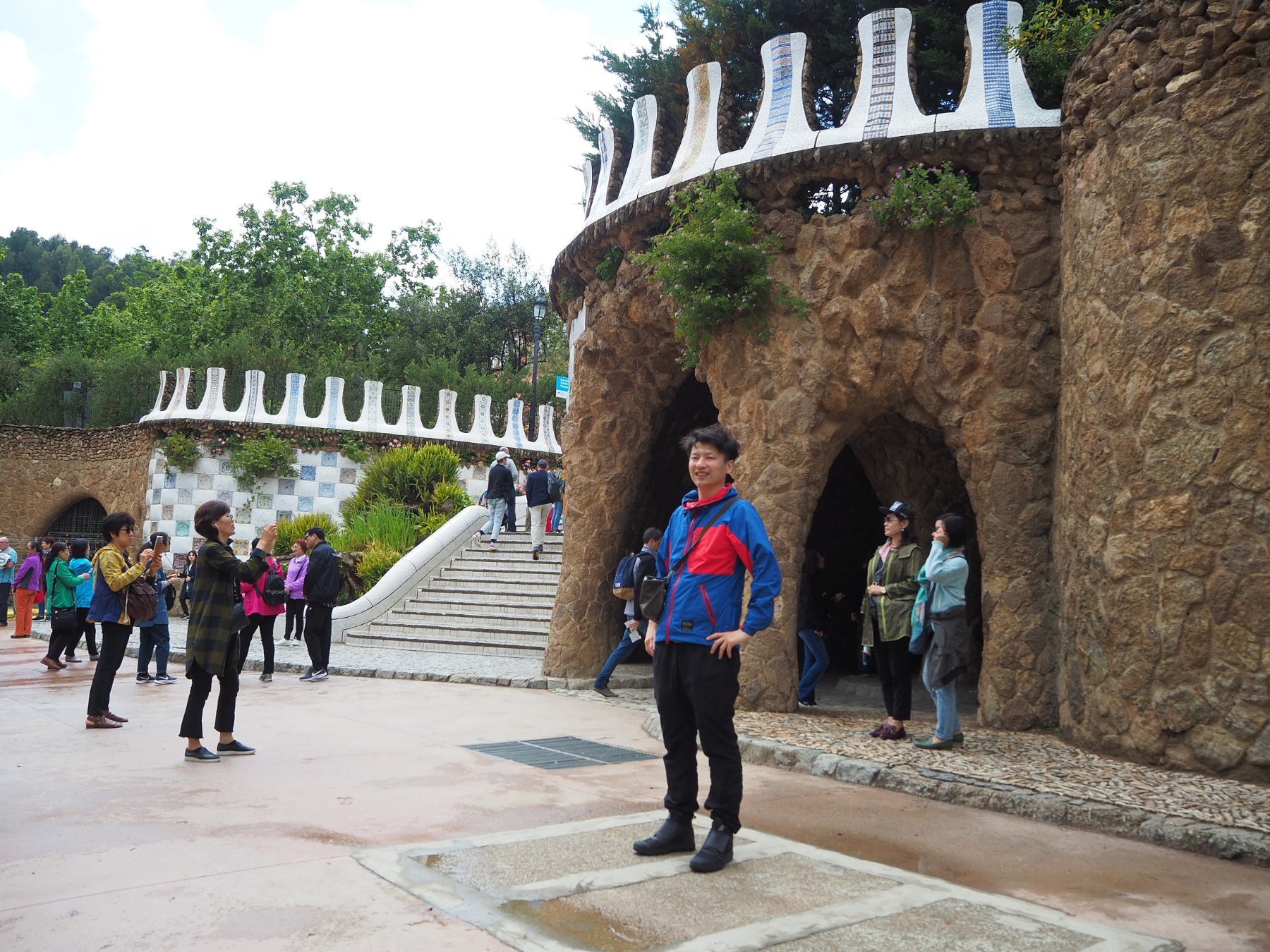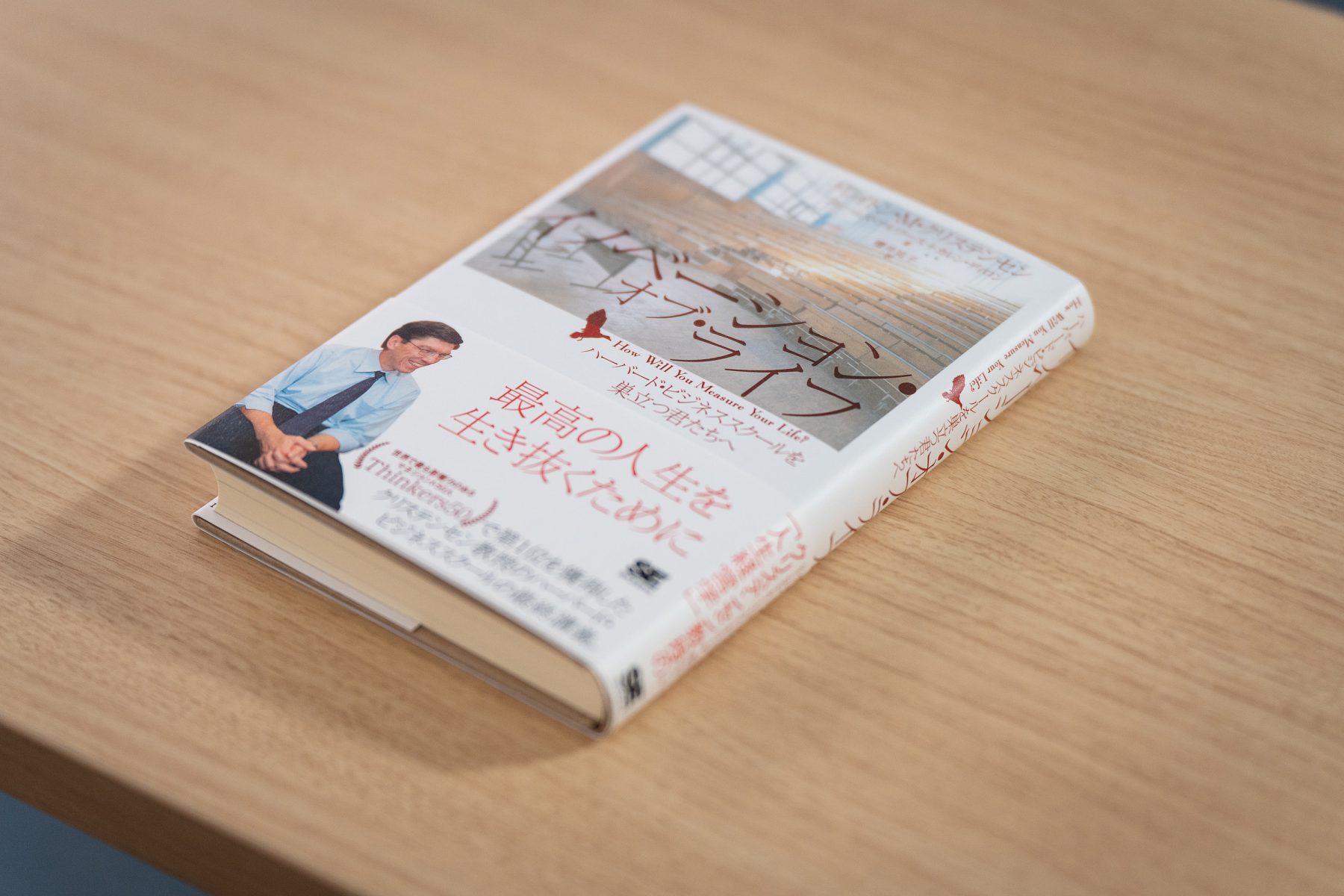
The more abstract and difficult the challenge, the greater the impact on society
First, tell us how you got started on this career path. Does it connect to any childhood interests?
My father worked in the IT industry, so we had computers in the house since the time I was a child. If I remember correctly, the display was in black and white back then. Those games that I played on it and my overall interest in how computers worked may have influenced me to this day. However, mine isn’t the typical “and that’s when I started programming!” kind of story. (laughs)
The reason for that was although I was interested in software, I didn’t have my own computer. I first started programming in college. One of the first things you do in most programming classes is write code that prints the words, “Hello World.” When I saw those words appear on my screen, I was really impressed, though it seems that my level of appreciation isn’t something that most people I share this story with can relate to. (laugh) I still remember the experience of being able to run a computer with a program that I had written, feeling like my interest in programming must be an extension of my interest in games and software as a kid.
What kind of things did you focus your studies on in college?
I was majoring in Information and Communication Engineering. Within this major I was able to study things like how computers work, but it’s hard to pinpoint a focus because I had so many different classes and did a few research projects during college and grad school. I belonged to a research lab that was strong in the area of image processing. There, I made both 3D displays as well as programs that I used to process various images and display them on that screen. The knowledge of computers and programming that I gained there is still useful to me today.
You originally considered becoming a researcher after completing graduate school, but instead you chose to start a professional career. What made you change your mind?
Of course researchers and the research they do that advances the development of cutting-edge technologies are very important, but I felt like my personality wasn’t cut out for making a career out of research. For that reason, I decided to find a job as an engineer where I could use technology to solve specific societal problems.

Tell us about your career after graduation.
I entered a major company as a systems integrator as a new grad. I had worked there for about four years when I started to think of searching for a new job in a slightly smaller organization where I could work more independently. It was at that time that a former colleague invited me to work at a startup they had recently founded. I worked at that company for four years before I started to think about making another change. This time, I knew I wanted to work at a company that was engaged in global business and where engineers played an active role. My friend told me that SmartNews was putting effort into the US version of their app. It sounded interesting to me, so I decided to go for an interview. That’s how I joined SmartNews in September of 2018.
What kind of work have you been doing since joining SmartNews?
Even before I joined the company, I had expressed my interest in the US version of the app and was often able to get involved with its development after I joined. My first big job at SmartNews was to be the tech lead for the function that delivers local US news. The purpose of the function was to let people read the local news from their location. For example, if the user was in New York, they would be able to read local New York news. If they were in San Francisco, they would be able to get the local news from San Francisco.
Although I was the tech lead, that doesn’t mean that I thought of everything by myself. I discussed with various engineers and product managers, and we worked together to shape the project. This might sound a little clichéd, but I think the project went well because we had so many talented members working on it.
Presently, I’m part of the Technical Foundation Pillar, but I’m mainly in charge of developing account-related functions within SmartNews. Specifically, I am working on enhancing our account system to provide greater convenience to our users. Rather than enhancing the user experience right now, what I’m doing is focused more on what I believe will be important for SmartNews in the future.
You spoke at AWS Summit Online Japan in 2020. Was the content of your presentation related to your work at SmartNews?
It was. So currently, SmartNews provides service in mainly Japan and the US. In the past, we only had servers in Japan. That meant when a user launched the application in New York, for example, the request would be sent across the ocean to Japan, and then the response would be sent back across the ocean to New York. This inevitably caused delays. The topic of my presentation at the Summit was, how can we redesign our system to make it faster? It wouldn’t have been a difficult thing to just build a server in the US, but even if we had a server in there to receive requests, we would still need to get the data from Japan to create the response, so it wouldn’t have been an effective solution. We needed to think about how to design something that was both efficient and effective.
Which AWS product did you incorporate into your design to achieve the results you wanted?
We used an AWS product called Amazon ElastiCache for Redis Global Datastore. This is a product that allows AWS to synchronize the Redis data in the data centers in Tokyo, Japan, and Virginia, US. By incorporating this product into the design, servers in the US are now able to respond quickly to requests from certain functions made within the US. I think we were able to reduce the time it took to process the requests down to one-third or one-fourth of the previous time required.
You chose to pursue the career path of an IC instead of becoming a manager. What were some of the reasons behind your decision?
The honest reason is that I wanted to do the work with my own hands. I had some responsibilities similar to those of an EM at my previous company, but I was more interested in learning new technologies on my own and using them in actual projects. At SmartNews, there are different grade levels for ICs. The grade levels are very well defined; what you will be able to do, what will be expected of you, and how you will be evaluated are all clear. I feel that this makes it easy to work. I believe that the clarity regarding these expectations and responsibilities was made even more detailed and easier to understand by Youlin Li, one of our Vice Presidents of Engineering, when he joined us in May 2019. Working as an IC, it’s very rewarding to get handed larger assignments as your grade increases. You move from implementing what senior people have designed to being able to think of your own designs as well as how best to define requirements with stakeholders.

As a senior IC, what career path do you see for yourself at SmartNews in the future?
SmartNews is still a young company, so I don’t have a clear image of the career path for an IC. As I increase my level of expertise and skill, I believe that even though the problems I come to face may be increasingly abstract and difficult, I will be able to have an even greater impact on society through my work.
Early you mentioned that you decided to find a job as an engineer where you could use technology to solve specific societal problems. Do you feel like you’re able to work toward that goal at SmartNews?
SmartNews is used widely in Japan, so I can easily find people around me who are using the app. When I tell my friends and family about a new feature that’s been added to the app, they use it and also give me feedback. This makes me feel like I’m contributing to their lives a little bit.
Last question. How would you define some of the characteristics common among people who work at SmartNews?
This is just my personal opinion, but I get the impression that there are many people here who have a sense of responsibility and who can manage their own work. Even if we give them input that is abstract, they are able to figure out what they need to do and produce high-quality output. Also, I think that everyone shares our mission of “delivering the world’s quality information to the people who need it.”
Books
Book Recommendation

Culture: the foundation for living your best life in both the home and the office
In this book, the author explains with easy to understand examples about how we should view and think about things to make our lives better, such as working on things that are truly meaningful to you and cherishing the time you spend with your family. I especially like the part of the book that touched on the importance of the culture in one’s home. After I read this, I started to talk regularly with my wife about our culture. I’d always thought of “culture” as a set of norms for how a group behaves and I’d seen books about company culture before like Ben Horowitz’s “What You Do Is Who You Are: How to Create Your Business Culture,” but what this book taught me was that both companies and families are essentially the same in that culture is important. Like, if this is the way that I want my children to grow up, then we need to create this kind of culture as a family. This is a book that made me realize those important things again.
How Will You Measure Your Life?
Author: Clayton M. Christensen
Publisher: Harper Business
Year published: 2012


